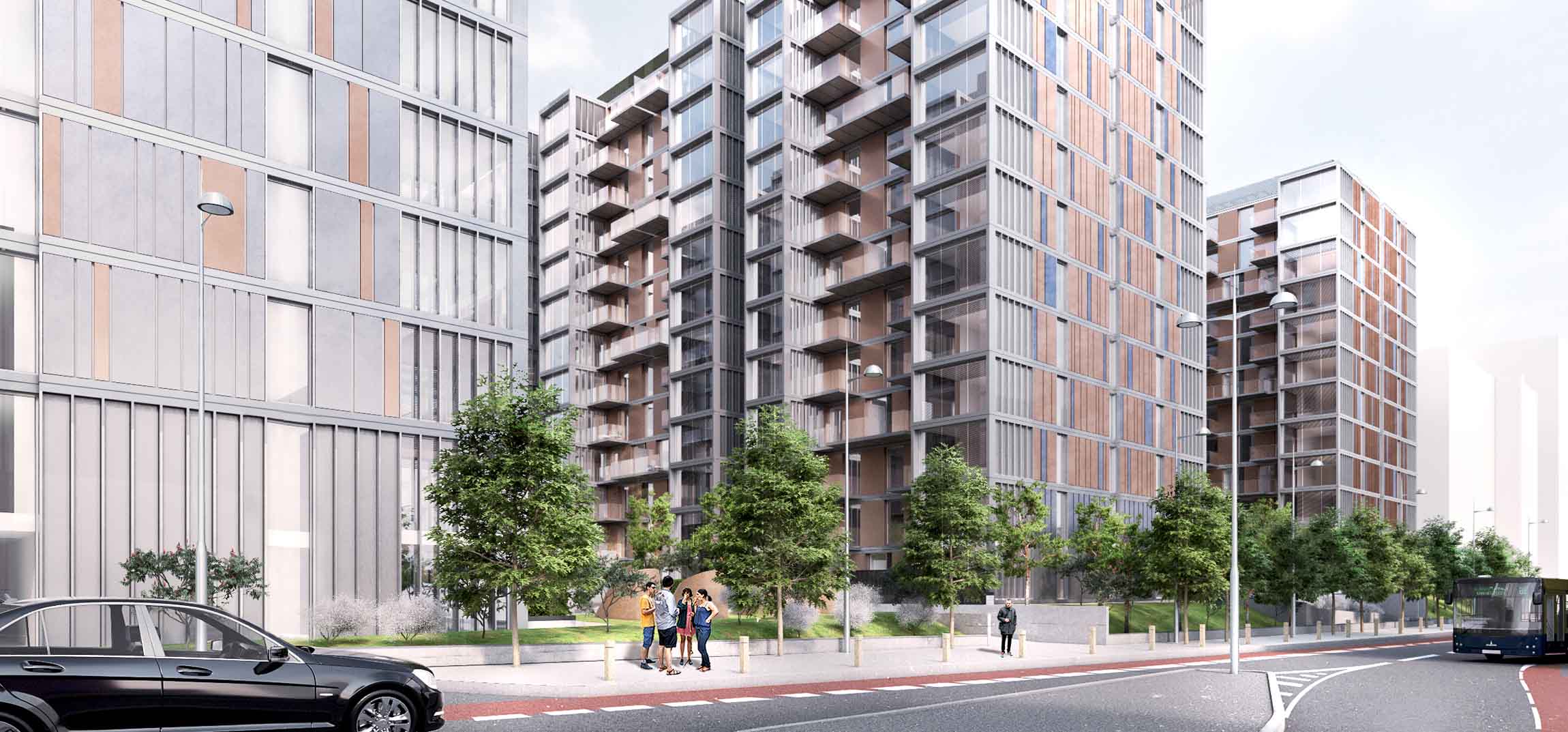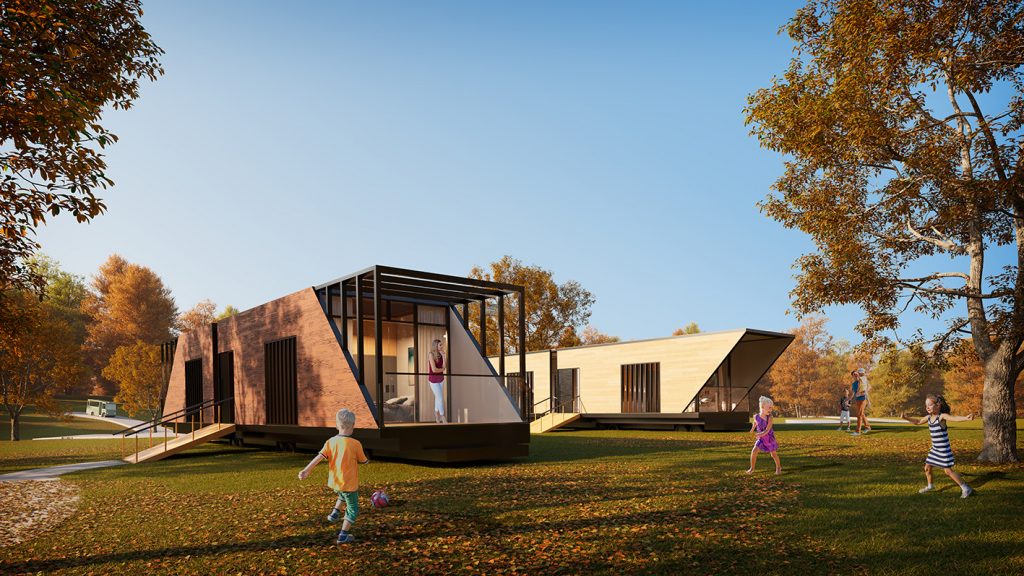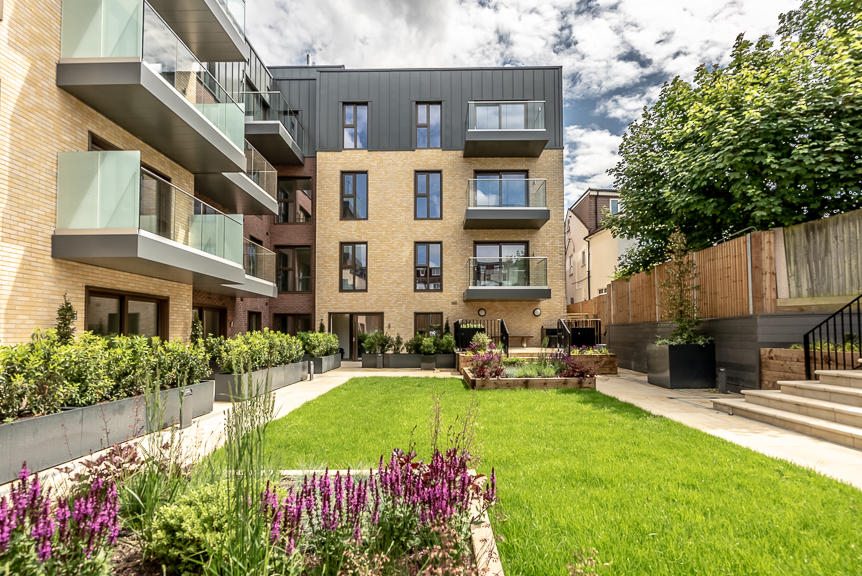
What is Modular Construction and What Role Does It Play in Modern Methods of Construction?
In an era where efficiency and sustainability are paramount, modular construction has emerged as a game-changer in the building industry.
This innovative approach, involving the pre-fabrication of building sections in a factory setting, is reshaping how we think about construction projects.
From residential buildings to commercial buildings and even glamping lodges, modular construction is making its mark.
But what exactly is it, and why is it becoming so popular?
Well, here at Studio Anyo, we are at the forefront of the MMC revolution, and we’ve created this guide to let you know why modular construction is an integral part of this new method.
Let’s take a look.

Understanding Modular Construction
Let’s start at the beginning and delve into exactly what we mean when we say modular construction.
At its core, modular construction is about creating buildings in a controlled, factory environment in modular sections, or ‘modules.’
These modules are then transported to the construction site and assembled into a complete structure.
This method stands in stark contrast to traditional construction, where everything is built on-site from the ground up.
So, let’s look at a brief timeline of a modular construction project:
- Off-site construction – As mentioned above, the building components are created off-site, and delivered when it is time to install.
- Use of Standard Materials and Codes – All modular buildings follow the industry practice of quality materials and are subject to the same codes and standards. This means checks must be made before the parts are sent out.
- Transportation to Site – Once all is signed off and the modules are ready, they can be transported to the building site.
- Assembly and Integration – Once at the site, the modules are assembled to form the building, before utilities are connected and the building is checked over to ensure it is functional and structurally sound.
The modular approach offers a unique blend of precision, efficiency, and flexibility, changing the way buildings are created, and it comes packed with benefits.
The Benefits of Modular Construction
Modular construction comes with a whole bunch of advantages.
Firstly, it significantly reduces construction time.
Since modules are built concurrently with site work, projects can be completed 30-50% quicker than traditional methods.
This is a huge positive as it not only means less labour is needed on site, but it also avoids disruption for long periods of time to local residents.
There’s also a notable cost advantage. Factory settings allow for better inventory management and less material waste, leading to substantial cost savings.
Environmentally, it’s a win-win situation as well. Modular construction is known for reduced waste and less site disturbance, making it a greener and more sustainable option.
Moreover, the controlled environment of a factory ensures consistent quality, reducing the risk of defects.
The modular approach is one that speeds things up without losing any quality, which in the construction industry is a real game-changer.
Challenges and Considerations to Modular Construction
With all that said, modular construction isn’t without its challenges.
Design flexibility can be limited, as the need to transport modules often restricts their size and shape.
There are also logistical hurdles involved in transporting large prefabricated sections, and on-site assembly requires careful planning and precision.
These are small issues though when looking at the bigger picture, and certainly not issues that can’t be worked around to ensure things still work as planned.
As we progress and technology advances, we will find ways to resolve these issues and then modular construction can become even more widespread.
Modular Construction at Studio Anyo
Despite these challenges, the practical applications of modular construction are vast and varied.
And right here at Studio Anyo, we have some great examples of work we have done which relied heavily on this method.
Take our eco resort project for example. We created seven environmentally-friendly lodges that are all modular structures. While the individual lodges aren’t all the same shape, key characteristics are the same, and that makes a modular approach work perfectly for quick creation and installation.
We also worked on Citizen M in Shoreditch, which was a huge hotel (check out our guide to modular construction in hotels here). This whole complex consisted of the aforementioned 135-bedroom modular hotel, plus eight residential units, and despite some complications in the project, this approach really helped boost efficiency and always maintained quality.
Finally, we created a range of luxury apartments containing one, two, and three bedrooms for our Spectrum House project. This was a great one to be on, and we worked alongside a modular supplier to deliver a stunning final result.
We have a wide range of projects all over the world that have adopted this approach, so check out our portfolio to see more.
The Future of Modular Construction
Looking to the future, modular construction is poised for growth.
Technological advancements, like 3D printing and AI, are set to further revolutionise this field.
These innovations could lead to even more customisation options, faster production times, and expanded applications in construction.
Imagine, for example, the technology itself is able to draw up its own designs or complete its own quality checks.
The efficiency of this approach is a huge factor already, and it’s only going to get better.
Modular Construction’s Role in Modern Construction Methods
In the grand scheme of construction methods, modular construction stands out for its ability to merge traditional craftsmanship with modern efficiency.
It complements other modern construction trends, like green building and smart technology integration, reinforcing its role as a forward-thinking, innovative approach in the construction industry.
We are proud to work as MMC advisors on many projects, and without our dedication to modular construction, each one would be a little bit tougher.

Studio Anyo
Modular construction is more than just a trend; it’s a significant shift in how we approach building.
By offering a blend of efficiency, quality, and sustainability, it’s well-positioned to play a major role in the future of construction.
As the industry evolves, modular construction is likely to become an increasingly common sight, changing skylines and living spaces around the world, and here at Studio Anyo, we can’t wait to be on that journey with it.
If you want to know more or want to discuss a project, then get in touch with our team today.


